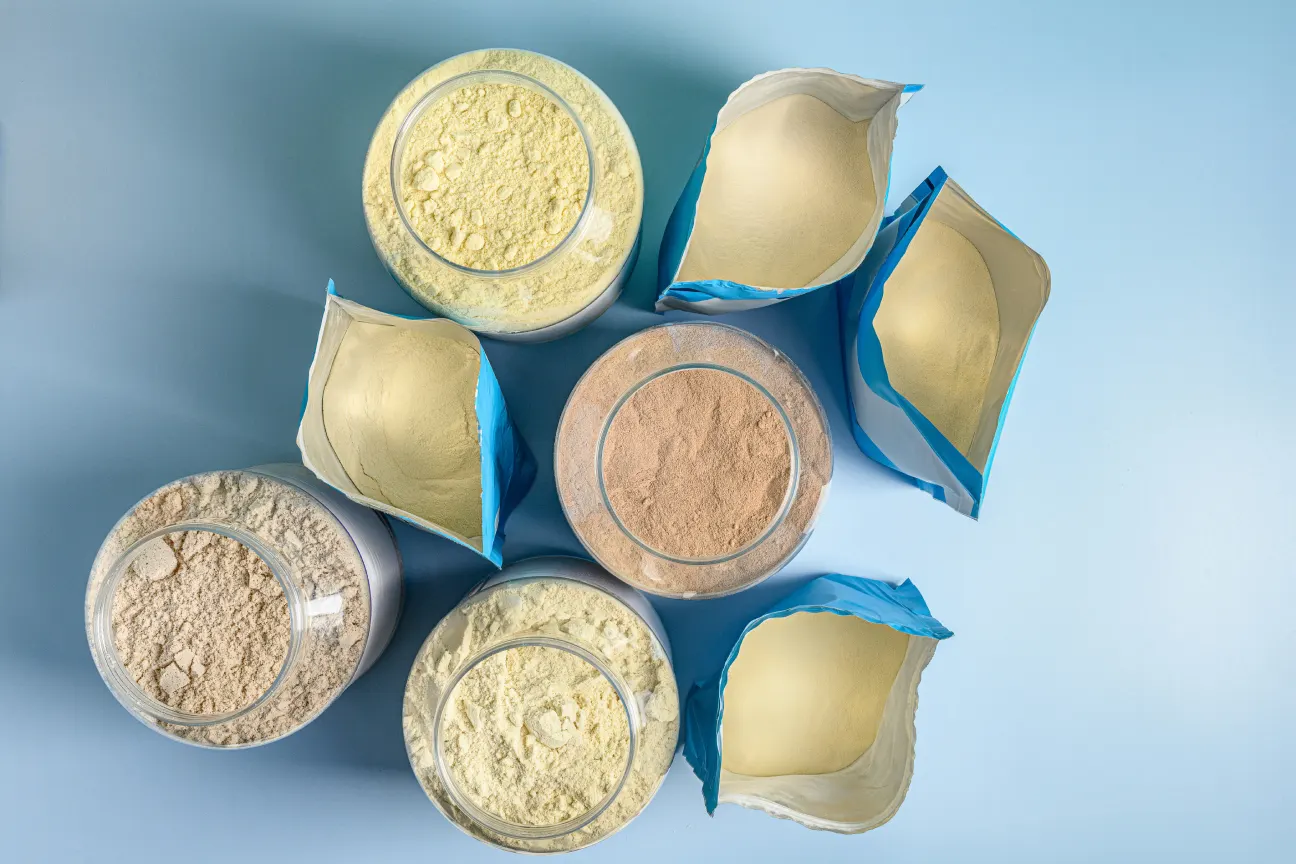
The halal market is growing fast, and halal protein is a big part of this growth. For B2B buyers, manufacturers, and exporters, finding halal-certified ingredients, especially protein powders, is very important. This article discusses different kinds of halal protein, what is needed for certification, how to source these ingredients, and current market trends. This information will hopefully help buyers make better decisions when purchasing ingredients.
Halal protein is protein that comes from sources that follow Islamic dietary rules. Plant-based proteins like pea, soy, rice, and faba bean are naturally halal, but they need to be processed in certified facilities to avoid contamination. Animal proteins, such as whey and collagen, must come from animals that were slaughtered in a halal way and processed in certified places.
As more people want halal options in food, drinks, and supplements, more B2B buyers are looking for halal-certified protein suppliers. They want suppliers who can provide clear documents, certification from trusted organizations, and transparency about each batch.
Today, the halal protein market includes both plant and animal sources. Halal whey protein is popular in sports nutrition and health products. Meanwhile, plant-based options like pea and soy are gaining traction with brands that want to attract flexitarian, vegan, and Muslim customers.
Halal protein powder comes in different types, such as isolate, concentrate, and hydrolyzed, to fit different needs. By 2026, we expect to see more plant-based halal options, especially in dairy-free and allergen-friendly products like protein bars, ready-to-drink beverages, and baking mixes.
Getting halal protein involves more than just finding the right ingredients. It is important to follow rules during every step: sourcing, processing, transporting, and packaging. For exports, certification should come from trusted organizations like JAKIM in Malaysia, MUIS in Singapore, IFANCA in the USA, or Halal Quality Control in the EU.
Buyers must ensure that the facility has valid certification, not just the ingredients. Labels like "halal-suitable" or "halal-friendly" are not enough in strict export markets. To lower risks, documents like Halal certificates, Certificates of Analysis (COAs), and cleanroom protocols should be provided if asked.
Halal-certified plant proteins are gaining popularity. They provide both ethical and practical advantages. These proteins are more sustainable, easier to certify, and align with global trends for natural, vegan, and allergen-free foods.
Soy, pea, pumpkin, and rice proteins are now found in halal ready-to-drink beverages, meat alternatives, and high-protein baked goods. For B2B buyers, this means more sourcing options and access to new customer groups, all while staying compliant.
Working with halal-certified protein suppliers is important for following rules, especially for brands that export. These suppliers give verified documents, provide samples, and often support custom blends or private labels. Nutrada has a platform that helps buyers compare halal-certified protein options from reliable producers easily.
Logistics and paperwork are essential. It's wise to ask for recent halal certificates, origin details, and processing information before placing a large order. For fast-moving consumer goods, having a reliable source for halal protein powder can give a competitive advantage.
Whey and collagen proteins are popular, but plant-based halal proteins are gaining popularity. The choice of protein depends on its intended use and how it is labeled. Whey protein has all essential amino acids and is easily absorbed, but it is not suitable for vegans or those who need dairy-free options. On the other hand, plant-based proteins are more sustainable, widely accepted, and easier to use in products for those with allergies.
Some B2B buyers choose to offer both whey and plant-based options. This helps them meet different customer needs and comply with various regulations.
As demand for halal products rises globally, it's vital for food, drink, and supplement brands to find the right protein sources. If you’re making a halal-certified ready-to-drink shake, supplement capsule, or high-protein bakery mix, using verified sources is essential.
Nutrada matches buyers with halal-certified protein suppliers in whey, and plant-based categories. You can explore and compare halal protein powder options to simplify your compliance and purchasing processes.